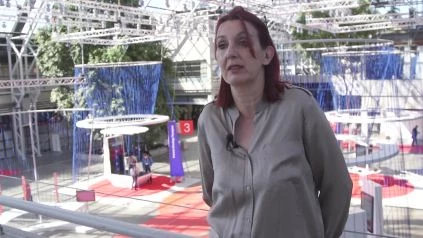Haifa Kathrin Al-Ali, MD from University of Leipzig, Leipzig, Germany discusses the unmet medical need of patients with polycythemia vera (PV) and essential thrombocythemia (ET), by outlining her arguments for new treatment options. Currently, all treatment guidelines are based on the risk of thrombosis. If the patient is low-risk based on age or history of thrombosis, they receive phlebotomy or low dose aspirin. If they are high risk they will receive high-dose aspirin and hydroxyurea, or a second line of treatment of interferon alpha. However even with these treatments thrombotic events still occur, highlighting how these drug are ineffective. Furthermore, recent studies have shown these treatments are related to disease-burden symptoms in patients with PV and ET. Prof Kathrin also discusses hydroxyurea resistance. Recorded at the European Hematology Association (EHA) 2016 Annual Congress in Copenhagen, Denmark.
[the_ad id="32629"]

